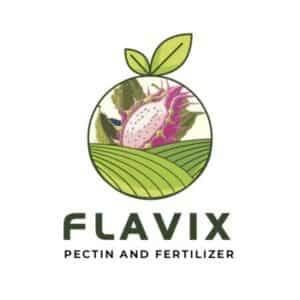

FLavix
As life develops, people’s demand for food is also increasing. Food products are increasingly diverse... View more
Proposal
Concern
Dragon fruit is one of Vietnam’s 14 key fruit crops. The peak of this item reached an export turnover of nearly 1.3 billion USD in 2018 (VietNamPlus).. And in the golden age, dragon fruit was present in 40 countries and territories. However, in the past three years, the export turnover of dragon fruit has continuously decreased, only over 600 million USD (Báo điện tử VTV news). Many farmers are being pressured by middlemen to lower prices or even refuse to buy, forcing people to abandon large quantities of dragon fruit along with dragon fruit processing factories, such as tea, jam and cake factories from dragon fruit, discharging tons of dragon fruit peel into the environment every day. This not only pollutes the environment but also causes an extremely large amount of waste of organic materials.
The Issue
In 2022, the area of dragon fruit cultivation in Vietnam reached nearly 55,000 hectares, the output of 1.285 million tons belonging to the group of eight fruit trees with the largest production scale(Báo Nhân Dân Điện Tử). Dragon fruit shell accounts for about 35% of the weight of dragon fruit, so the amount of dragon fruit shell discharges is about 400,000 – 450,000 tons of shell/ year, this is a huge amount of waste without optimal treatment measures. In Vietnam, this solution to collect and reuse organic materials is still very limited.
Affected Parties
Farmers face difficulties in dealing with substandard fruits and dragon fruit peel discarded from young fruits in the orchard, as well as dragon fruit peel from fruit processing factories causing environmental pollution. Besides, people also face a serious shortage of green energy in the market.
How serious is this?
Along with resource depletion, the world’s demand for resources is increasing beyond the Earth’s supply capacity. Without timely measures, the amount of waste will exceed the load-bearing limit of the environment. Circular economic development is one of the effective measures to help reduce the amount of resources used and the amount of waste generated, contributing to the conservation of resources and reducing the impact of environmental pollution. Environmental protection and sustainable development are important goals in ensuring a sustainable future for people and the planet.
Emergency
If businesses do not apply sustainable standards and circular economy models to production and business and cannot create environmentally friendly products, they will have difficulty in surviving in the future.
Call to action
Flavix takes advantage of dragon fruit peel to separate Pectin to provide safe food ingredients for consumers’ health, taking advantage of the excess after separating Pectin to make organic fertilizer. This not only helps solve the problem of waste but also creates products with commercial value, environmentally friendly.
Flavix’s Ideas and Solutions
- Production of pure pectin and organic fertilizer from dragon fruit skins.
- Providing Pectin to food processing markets such as confectionery, fruit jam,…
- Providing organic fertilizers to agricultural crops, and to the people.
- Exporting Pectin products to international markets such as North America, Europe, South America, Asia Pacific, the Middle East and Africa are places with high demand for Pectin in the fields of food, beverages, cosmetics…
Value of the solution
- Minimize environmental pollution and waste of raw materials.
- Apply circular economy to the production process.
- Contribute to the United Nations Sustainable Development Goals (SDGs) 7 (Affordable and Clean Energy), 11 (Sustainable Cities and Communities) and 12 (Responsible Consumption and Production)

